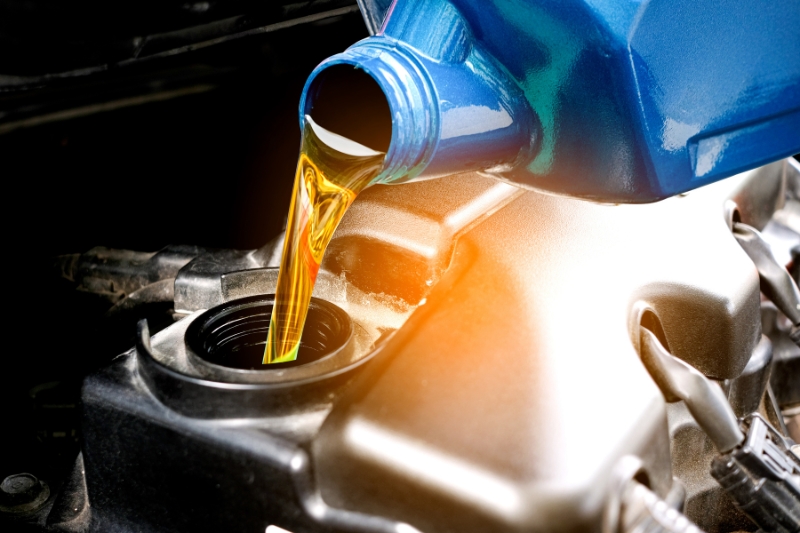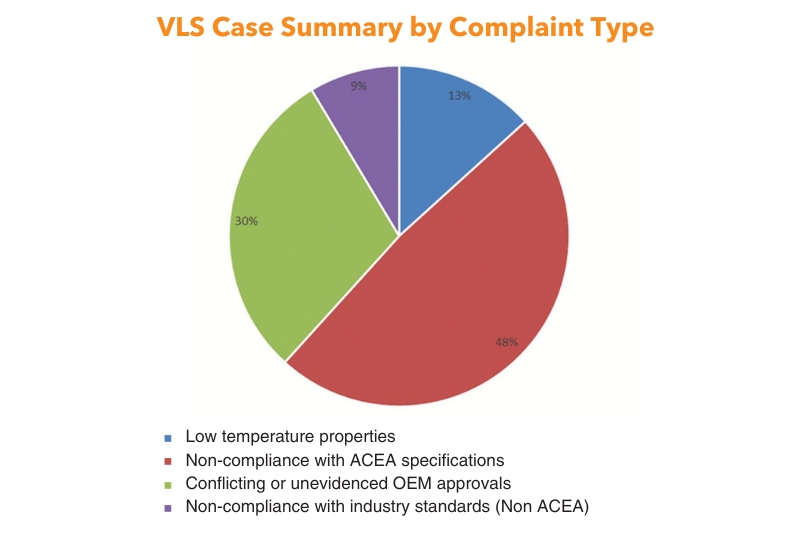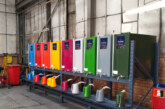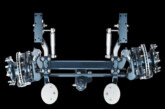What’s causing oil investigations to increase?

CVW spoke to Alan Outhwaite, chairman of the Verification of Lubricant Specifications (VLS) technical review panel, about the recent spike in lubricant investigations and its work to uphold standards in the lubricants industry.
When VLS was first formed in 2013, there was a lack of understanding in some areas of the marketplace. Twelve years later, we are confident that the message around compliance is being heard. However, the rise in cases over the past 12 to 18 months demonstrates that there is still work to do.
Trends in cases
To date, the VLS has investigated 123 cases but twelve months ago, the figure stood at ninety. VLS has seen a rise in case investigations of 37 per cent. In the past two years, VLS has opened 41 investigations, more than in the preceding six-year period. Whilst many of these relate to passenger vehicle engine oils, commercial vehicle engine oil cases are rising. Amongst these, non-compliance with stated specifications remains the most frequent cause of complaint.
Whether it be compliance with the ACEA’s European Engine Oil Sequences, other market standards or conflicting or unevidenced OEM approvals, it is vital that workshops can be confident that a product can deliver what it claims and is suitable for use in the given application.
In many cases, products have been reformulated and brought into compliance. For example, case VLS 010201 regarded a complaint against Aztec Oils Emprotec UHPD 10W40, a heavy-duty engine oil, which alleged that Renault does not support the RLD-4 as a specification, and as such, the product cannot meet it.
Following an investigation, VLS upheld the complaint as Renault does not issue the RLD-4 specification for service fill, and it is not mandated for use in any of their current vehicles. Aztec Oils moved quickly to withdraw the claim against RLD-4. They retained the claim against RLD-3 and amended the product’s description and technical data sheet accordingly.

However, several cases have also been referred to Trading Standards for noncompliance and to protect driver safety. The primary authority relationship with Buckinghamshire and Surrey Trading Standards, which VLS entered into in 2020, has proved effective in concluding certain cases where escalation has been required to prompt action. For example, case 010211 which was a complaint against a 5W-30 ACEA E9/E7 automotive heavy-duty vehicle engine diesel oil, is currently under investigation. The technical review panel has determined that the product is not compliant with the ACEA claims made based on its high temp/high shear test result. The lubricant marketer has been contacted regarding the result.
Changes in the industry
Hybrid vehicles now have an increasing share of the vehicle parc, with specialist performance requirements for specific engines. Lower viscosity fluids formulated with complex additive chemistries have continued to become more commonplace, increasing the number of products in the market. Correct selection is imperative, compounded by the ageing vehicle parc where the most modern formulations may not be suitable for older vehicles.
Additives play a vital part in lubricant performance, delivering a variety of characteristics to combat wear and corrosion, disperse soot and prevent the build-up of deposits whilst ensuring compatibility with emission control devices. Along with the proliferation of lubricant products in general, VLS is concerned about the integrity of products from new companies entering the additives market. Their additives may be cheaper, but they may also not be fully tested or approved as published industry and OEM specifications require. Thus, we are monitoring this market development closely.









